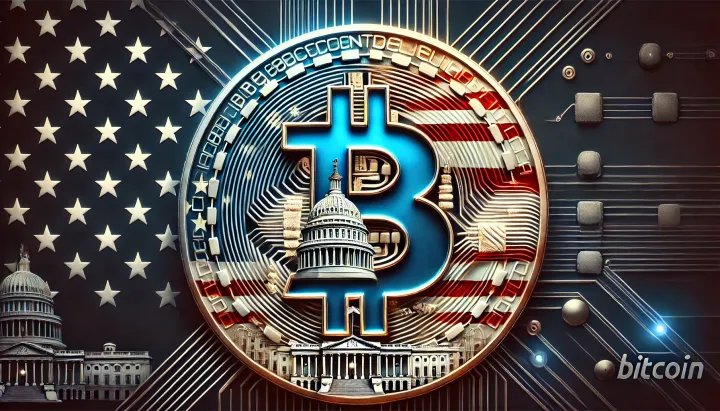Deregulation as a Catalyst for Economic and Technological Growth
The December 7, 2024 episode of the Ark Invest podcast features Cathie Wood and Sam Korus discussing the transformative impact of deregulation across multiple industries, focusing on space exploration, technological innovation, and digital asset policy.

- My 'briefing notes' summarize the content of podcast episodes; they do not reflect my own views.
- They contain (1) a summary of podcast content, (2) potential information gaps, and (3) some speculative views on wider implications.
- Pay attention to broadcast dates (I often summarize older episodes)
- Some episodes I summarize may be sponsored: don't trust, verify, if the information you are looking for is to be used for decision-making.
Summary
The December 7, 2024 episode of the Ark Invest podcast features Cathie Wood and Sam Korus discussing how deregulation in space technology, digital assets, and AI-driven governance can drive transformative economic growth. SpaceX’s reduced satellite launch costs, the push for clearer digital asset policies, and government efficiency reforms through AI emerged as key opportunities to boost productivity and redefine market dynamics.
Take-Home Messages
- Deregulation Fuels Innovation: Lower regulatory barriers have accelerated technological advancements, particularly in space exploration and satellite-based internet services.
- Bitcoin Crosses $100,000: Bitcoin’s price milestone highlights its evolving role as a global reserve asset amid changing financial regulations.
- AI-Driven Government Modernization: Automation and artificial intelligence could streamline administrative processes, cutting government waste.
- Economic Growth Through Policy Reform: Proposed deregulation policies could reduce fiscal deficits, boost GDP growth, and stimulate investment.
- Competitive Global Positioning: Countries embracing deregulation are likely to gain technological and economic advantages on the world stage.
Overview
In the December 7, 2024 episode of the Ark Invest podcast, Cathie Wood and Sam Korus underscored how deregulation can act as rocket fuel for economic growth, linking policy changes to advancements in space, digital assets, and government efficiency. SpaceX’s reusable rockets, driven by minimal regulatory constraints, have reduced satellite launch costs, enabling affordable global internet services. Elon Musk’s vision of Mars colonization has created a long-term roadmap for aerospace innovation with potential Earth-side economic benefits.
Government reforms through the newly proposed Department of Government Efficiency (DOGE) could modernize public-sector operations by integrating artificial intelligence and streamlining procurement processes. Reducing bureaucratic inertia and enhancing administrative transparency emerged as central goals for the incoming U.S. administration.
Digital asset regulation also took center stage. Wood and Korus explored Bitcoin’s rise past $100,000, reflecting increasing institutional confidence. Clear regulatory frameworks could enhance market stability, promote broader adoption, and attract global investment while securing U.S. leadership in digital finance.
Economic forecasts included robust U.S. GDP growth driven by deregulation-induced investment, deflation from technological advancements, and a more innovation-driven market. A call for balanced monetary and fiscal policy emerged as a key counterweight to inflation risks tied to increased government spending.
Stakeholder Perspectives
- Government Agencies: Face pressure to balance deregulation with safety oversight while managing public accountability.
- Tech and Space Companies: View deregulation as essential for scaling innovation and accessing new commercial markets.
- Investors and Financial Institutions: Anticipate regulatory clarity will create more investment opportunities, particularly in digital assets and emerging tech sectors.
- Global Competitors: May impose protectionist policies to counter U.S.-led deregulation-driven market expansions.
- Consumers and Entrepreneurs: Expect increased technological access, lower costs, and expanded economic opportunities due to reduced regulatory constraints.
Implications
Deregulation could accelerate the pace of technological innovation and economic expansion by reducing costs, fostering entrepreneurship, and driving investment. If SpaceX’s cost-saving model becomes a global standard, satellite-based internet and other aerospace applications could scale rapidly, bridging the global digital divide.
However, easing regulations could provoke geopolitical competition and intensify global market rivalries. Additionally, removing too many regulatory barriers may create public safety risks and environmental concerns, necessitating a balance between open-market policies and protective frameworks. Economic policymakers will need to manage inflation risks while ensuring that deregulation-driven growth does not widen the global digital and economic divide.
Future Outlook
The next decade could see accelerated technological and economic progress if U.S. deregulation efforts take hold. Space, digital assets, and AI-driven public sector reforms are likely to redefine market boundaries and create new investment frontiers. If successfully implemented, government modernization efforts may spark a wave of innovation-led productivity that reshapes global economic leadership.
However, these gains depend on effective policy execution, sustained investor confidence, and global competitive dynamics. Countries embracing policy flexibility and emerging technologies are poised to lead in the coming tech-driven economic cycle. The potential for increased global competition remains high, with technological innovation likely driving both opportunity and rivalry in equal measure.
Information Gaps
- How can governments balance privacy concerns with AI-driven administrative efficiency? Privacy and data protection laws may struggle to keep pace with AI adoption. This question explores how governments can safeguard personal data while leveraging AI for administrative cost reductions and service improvements.
- What legal frameworks could provide greater clarity for digital asset classification and regulation? Regulatory ambiguity around digital assets continues to hinder institutional adoption. Establishing clear legal frameworks would reduce market uncertainty, enabling greater investment and long-term financial stability.
- How might deregulation-driven U.S. innovation influence global technology leadership rankings? Understanding how deregulation policies enhance U.S. technological leadership is crucial for forecasting long-term global economic competition. This could shape national policies in other technology-driven economies.
- What organizational strategies can overcome resistance to technological change in public institutions? Bureaucratic inertia has long impeded modernization efforts. Identifying strategies to break down resistance could accelerate tech adoption and administrative reforms in public services.
- What measures can bridge the digital divide caused by uneven global technology access? Expanding global internet access through space-based technologies could close the digital divide. This question highlights policy-driven approaches to creating equal access in underserved regions.
Broader Implications for Bitcoin
Bitcoin’s Role as a Global Reserve Asset
The podcast’s emphasis on deregulation and the pursuit of reduced market barriers signals a potential acceleration of Bitcoin’s institutional adoption. If regulatory clarity increases, Bitcoin’s use as a reserve asset could expand, particularly as central banks explore alternatives to traditional reserves amid ongoing inflation concerns. This dynamic could reshape the global financial system by integrating decentralized monetary instruments into institutional portfolios.
Space Tech as a Bitcoin Adoption Enabler
SpaceX’s satellite internet expansion through Starlink could drive broader Bitcoin adoption by enabling seamless digital asset transactions in remote and underserved regions. With two to three billion people lacking internet access, improved global connectivity could integrate more individuals into the Bitcoin ecosystem, fostering decentralized finance on a global scale.
Digital Asset Market Maturity
Deregulation across technology and finance could mature Bitcoin markets by inviting more institutional investors, reducing volatility, and fostering greater price stability. Institutional trading infrastructure, supported by clear policy frameworks, would encourage pension funds and sovereign wealth funds to allocate a portion of their portfolios to Bitcoin, strengthening its role as a long-term asset.
AI-Driven Policy and Bitcoin Regulation
The integration of AI into government regulatory processes could streamline policy development and enforcement in the digital asset sector. Automated compliance systems powered by AI could monitor digital asset markets in real time, ensuring more transparent and efficient regulatory oversight while reducing fraud and illicit activity.
Bitcoin-Driven Financial Sovereignty
The podcast’s discussion of inflation and fiscal instability highlights the relevance of Bitcoin as a hedge against currency debasement. Countries facing monetary crises could increasingly adopt Bitcoin as a tool for preserving national wealth, providing financial sovereignty in times of economic distress. This trend could intensify if inflation-driven currency devaluation accelerates in emerging markets.
Policy-Driven Mining Innovation
If deregulation expands to the energy sector, particularly in nuclear power and renewable energy, Bitcoin mining could become more sustainable and economically viable. Lower energy costs driven by reduced regulatory overhead would enhance the profitability of Bitcoin mining while promoting environmentally conscious energy consumption.



Comments ()